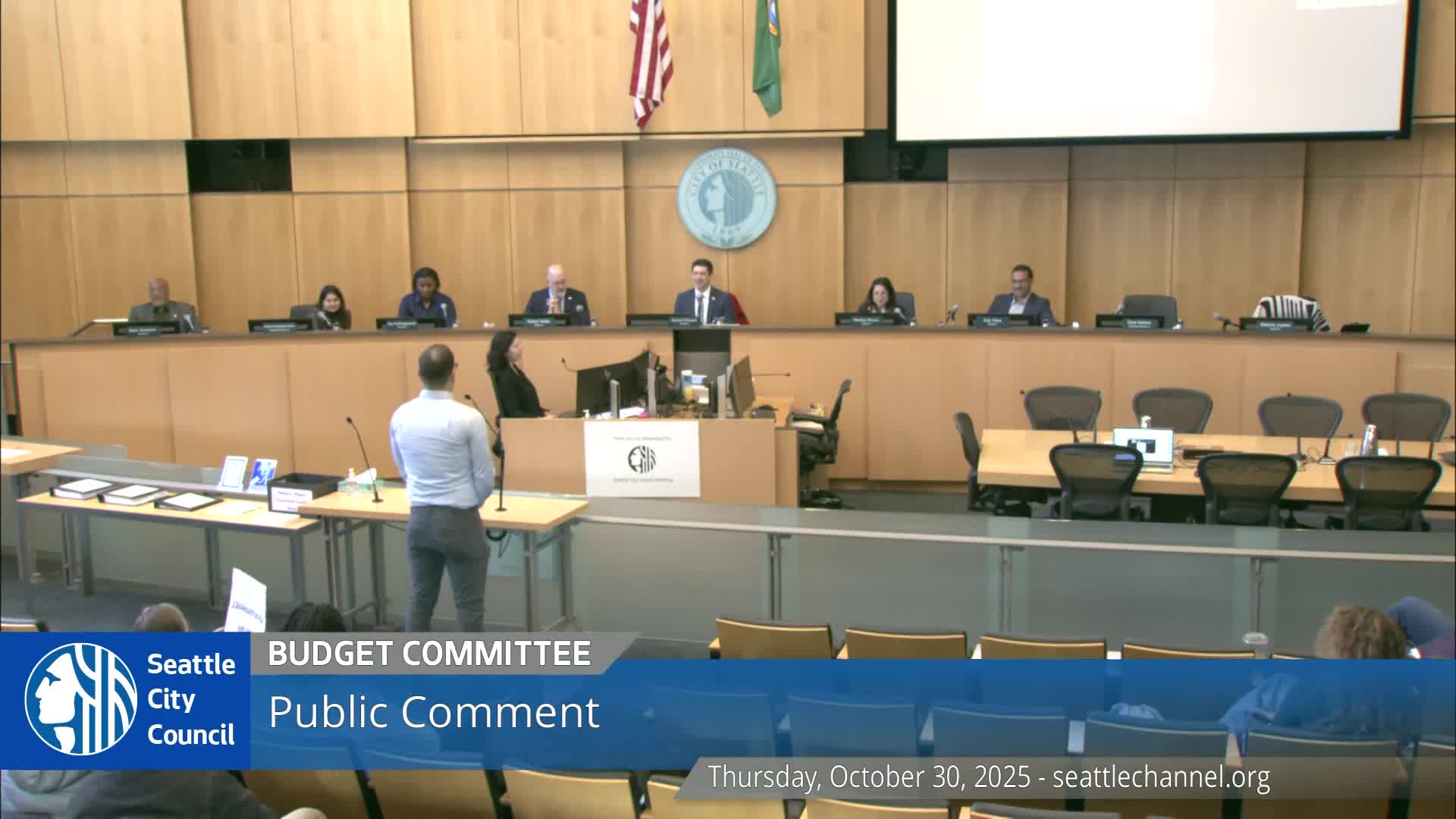Event-district stakeholders push council to study unpermitted vending and amplified-noise impacts
Get AI-powered insights, summaries, and transcripts
Subscribe
Summary
Representatives from sports venues, business districts and neighborhood groups urged study and enforcement action on unpermitted food and merchandise vending and amplified sound near event districts, citing health, safety, access and business competition concerns ahead of large events.
Seattle — Venue operators, neighborhood business groups and event-area stakeholders told the Select Budget Committee on Oct. 30 that unpermitted vending and amplified-sound devices pose health, safety and accessibility concerns, and they urged the council to support studies and enforcement updates.
Speakers included representatives from Lumen Field, Climate Pledge Arena, the University District Partnership and the Seattle Mariners. Drew Johnson and Morgan Littlefield said they support Councilmember Saka—s amendment requesting a comprehensive review of licensing and enforcement for unpermitted food and merchandise vending (m0003sa) and a related study of noise enforcement (m0002sa). They cited growing unpermitted vending around event districts and the need for coordinated action in advance of the 2026 FIFA World Cup.
Why it matters: Speakers said unpermitted vending can create access and health concerns, congest sidewalks and unfairly compete with permitted small businesses. Amplified sound in public rights-of-way, they argued, can create health and safety risks for guests and employees and reduce accessibility as crowds enter and exit venues.
What the council heard: Councilmembers agreed a coordinated policy review could identify licensing, enforcement or code changes that balance street vending and public-safety and public-health obligations. No votes were taken; the amendments were entered for further consideration.
Ending note: Sponsors asked city departments to coordinate with venue operators, neighborhood business groups and public-health staff during any review and to return with actionable recommendations in time for final budget decisions.
